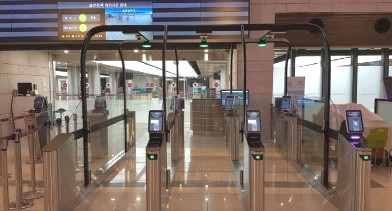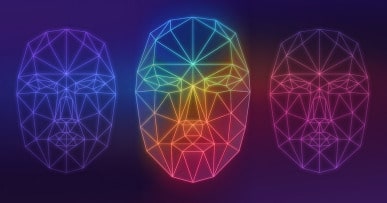
The South Korean government shared roughly 170 million face images of citizens and resident foreign nationals with the private sector without their consent to be used in training and testing biometric algorithms, according to a recent Ministry of Justice document.
The report was seen by Hankyoreh, and describes the capture and handling of face biometric data collected at Incheon International Airport, according to materials handed to Democratic Party National Assembly Member Park Joo-min
The move is part of an “AI identification and tracking system development project” based on a memorandum of understanding between the Korean Ministry of Justice (MOJ) and the Ministry of Science and ICT (MSIT).
Scheduled for completion in 2022, the project has seen the MOJ transferring information obtained during the immigration screening process to the MSIT, including face biometrics, nationality, gender, and age.
The MSIT subsequently transferred that information to private businesses for the purpose of artificial intelligence technology research, according to the allegations.
The South Korean government mentioned the creation of the project in a press release when it first launched in 2019 but did not disclose information about its structure, scope, or data collection methods.
Of the facial images collected, 100 million were used for “AI learning” and another 20 million for “algorithm testing.”
Noticeably, the Korean Immigration Act only allows the MOJ to collect or store face and fingerprint biometrics of citizens who have applied to use the automated immigration clearance service introduced in 2008.
Despite this, this MOJ has installed a total of 88 cameras around the Incheon Airport immigration area, 50 of which have face biometrics capabilities.
According to Hankyoreh, the MSIT-affiliated National IT Industry Promotion Agency (NIPA) is currently planning the deployment of more than 100 additional cameras in the immigration area and its glass booths. The cameras feature one-to-many facial recognition technology.
“A comparison between photographs taken by closed-circuit cameras and existing database images is used to confirm whether [the person in the photograph] is a registered international passenger, and the database is searched until the person who appears in the captured image is found,” NIPA explained.
Still, in the recent document obtained by Park Joo-min’s office, the MOJ explained that while the collection of images fell within the scope of the project, the consent of the subjects was not obtained.
“An AI identification and tracking system may be helpful to some extent in making immigration reviews easier and maintaining security within airports,” Park explained.
“But if this project involved the handling of individuals’ sensitive information without their consent and without any special regulations to serve as its basis, then we need to immediately reexamine its legality,” he concluded.
Minister of Justice Park Beom-kye expressed surprise at the biometric data-sharing, and pledged minimal use of the resulting technology, within the scope of legal immigration checks. He also said the project cannot be retracted or canceled.
A privacy advocacy group, meanwhile, has announced plans to launch a class action suit over alleged violation of the country’s Personal Information Protection Act.
Article: Seoul shares face biometrics of 170M travelers with private firms


